Crimea on fire Russian distemper
"Red oprichnina"
The Bolsheviks were the first to establish their power in the Crimea, having strong support here - the revolutionary sailors of the Black Sea fleet. The anti-Soviet element in Crimea was weak. Most of the officers were “outside politics” and could not even defend themselves when outbreaks of “red terror” began. Refugees moved to the peninsula not to fight, but to sit out. There was no strong nationalist element - Ukrainian and Crimean Tatar; nationalists needed a strong external patron to activate them.
The Red Oprichnina in the Crimea, as General Denikin called it, left a heavy memory. Russian distemper was a terrible, bloody period. Revolutionary sailors exterminated the "counter", mainly naval officers and their families, and other "bourgeois". The sailors established the Soviet government in a similar scenario: the ships approached the coastal city and under the guns crushed any resistance from local or Tatar authorities. So were taken Yalta, Theodosius, Evpatoria, Kerch and Simferopol, where the Tatar autonomous "government" settled. Here, under the knife, along with the “bourgeois”, Tatar nationalists were also let out.
In this case, you should not blame the Bolsheviks for everything. In the unrest upward throws out various criminal evil, which tries to "repaint" under the winners, to get power and rob, rape and kill on "legitimate" (with a mandate) grounds. In addition, anarchists gained strong positions at this time. They called themselves Bolsheviks - a lush soldier-sailor freemen, a criminal element. But disciplines, order did not recognize, they wanted to live freely. As a result, the Bolsheviks, in process of restoring order in the country and the creation of Soviet statehood, had to crush these anarchists, troublemakers and criminals.
German occupation
The Reds did not last long in the Crimea. After the Brest Peace, Austro-German troops occupied Little Russia, Donbass and Crimea. In April - May 1918, the German occupying forces under the command of General Kosh (three infantry divisions and a horse brigade) occupied the peninsula without resistance. At the same time, the Crimean Tatars revolted all over the peninsula. Some members of the government of Taurida, led by Slutsky, were captured by Tatar separatists in the Alupka area and shot.
The Germans occupied the Crimea for strategic reasons and by the right of the strong (in accordance with the conditions of the Brest world, Crimea belonged to Soviet Russia). They needed Sevastopol to control communications on the Black Sea. They also hoped to capture the Russian fleet. Therefore, when the "Ukrainian" troops headed by Bolbochan tried to outrun the Germans and capture the Crimea, the Black Sea Fleet, the Germans quickly put them in place. The Germans did not pay attention to the attempts of the Soviet government to stop their advancement to the Crimea by diplomatic means. They simply "in passing devoured" the Crimea "(Lenin's expression).
Sevastopol fortress was the second in power in Russia, with numerous artillery. Even without the support of the fleet, she could fight for many months. And with the Black Sea Fleet, which had complete supremacy at sea, the Germans would never have been able to take Sevastopol. However, there was no one to defend him. Revolutionary soldiers and sailors at this time completely decomposed, happy to beat and robbed the "bourgeois", but did not want to fight. There were almost no officers left on the ships, and they quickly came to a non-operational state. The question was where to run or how to negotiate with the Germans. The Bolsheviks wanted to lead the fleet to Novorossiysk, and the Ukrainian nationalists agreed with the Germans. The Bolsheviks appointed Admiral Sablin commander of the fleet and took the ships to Novorossiysk. Part of the fleet was abandoned in Sevastopol - most of these ships were not manned or their crews did not dare to leave. The ships left on time. On the night of May 1, German-Turkish ships took up position in front of Sevastopol. 1 (14) May the Germans occupied Sevastopol. The city fell without a fight. The core of the Black Sea Fleet successfully reached Novorossiysk. But here, in the conditions of the inevitability of their capture by the Germans, the lack of a material base and the possibility of fighting, the ships eventually sank"I die, but I don't give up." How the Black Sea Fleet Perished). Part of the ships led by the battleship Volya returned to Sevastopol and were captured by the Germans.
3-4 May 1918, the Germans raised their flags on Russian ships that remained in Sevastopol: 6 battleships, 2 cruisers, 12 destroyers, 5 floating bases and a number of other small ships and submarines. Also, the Germans seized a number of large merchant ships. Mining was enormous - the ships were generally serviceable (engine rooms and artillery were not destroyed), all fleet reserves, fortress artillery, ammunition, strategic materials, food, etc. The Germans appointed Captain 1-rank Michael Ostrogradsky, commander of the Ukrainian fleet in Sevastopol. But neither Ostrogradsky nor the “Ukrainian state” itself (holding on to the German bayonets and in Little Russia itself) had any real power in Sevastopol. All controlled by the German Admiral Hopman. The Germans quietly robbed both public and private property in Sevastopol. Soon the Germans transferred the Prut cruiser (former Medgidiye) to the Turks, taking it to Constantinople. They captured the floating workshop "Kronstadt", the cruiser "Memory of Mercury" made their barracks. The Germans managed to enter several destroyers, submarines and small vessels into the combat force.
An attempt to revive the Crimean Khanate
No more interests in the Crimea, except for the base and the ships in Sevastopol, the Germans did not have. The second Reich went to its collapse and could not establish a full-fledged occupation regime. The main tasks were the robbery and export of valuable materials and food. Soldiers sent parcels of food to Germany, the command - entire trains with the loot. The keys to the shops, warehouses and workshops of the Sevastopol port were from the German officers, and they took everything they wanted. Therefore, the Germans almost did not intervene in local life and allowed the work of the Crimean regional government headed by Matvey Sulkevich. Lieutenant General Sulkevich commanded a division and corps during World War II. Under the Provisional Government, he was to lead the Muslim corps. Sulkevich adhered to conservative views, was a staunch opponent of the Bolsheviks, so his figure was approved by the Germans. The Germans were confident that the general would provide order and calm on the peninsula, would not cause problems.
The government of Sulkevich focused on Germany and Turkey, planned to convene the Crimean Kurultai (constituent assembly) and proclaim the creation of the Crimean Tatar state under the protectorate of the Turks and Germans. Sulkevich himself begged from the German Kaiser Wilhelm II the title of Khan. However, Berlin did not support the idea of independence of the Crimea. The German government at that time was not up to the problems of Simferopol. This question was postponed until better times. At the same time, the existence of two puppet regimes in Simferopol and Kiev (“divide and conquer!”) Was beneficial to Berlin. Kiev was reassured by the fact that soon all its territorial claims would be satisfied. And Simferopol promised protection from the claims of the Ukrainian government.
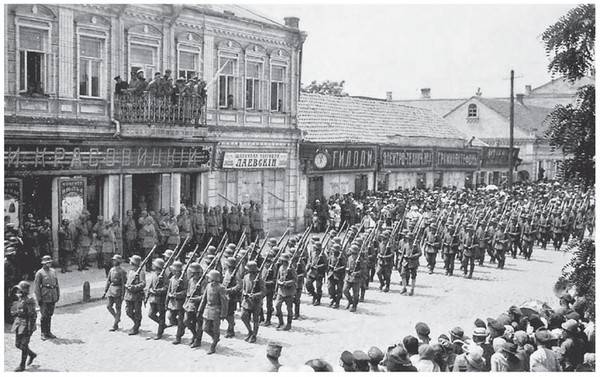
The Crimean government quarreled with the Central Rada and the Skoropadsky regime (other German puppets) who tried to subordinate Crimea to Kiev. General Skoropadsky understood the economic and strategic importance of the peninsula to Ukraine well. He noted that "Ukraine cannot live without owning the Crimea, it will be some kind of body without legs." However, without the support of the Germans, Kiev could not occupy the Crimean peninsula. In the summer of 1918, Kiev began an economic war against the Crimea, all goods that were sent to the peninsula were requisitioned. As a result of this blockade, Crimea lost bread, and Little Russia lost fruit. The food situation on the peninsula has deteriorated significantly, food stamps had to be introduced in Sevastopol and Simferopol. Crimea could not feed its population by itself. But the government Sulkevich stubbornly stood on the position of independence.
The negotiations of Simferopol and Kiev in the autumn of 1918 did not lead to success. Simferopol offered to focus on economic issues, and for Kiev more important were political issues, first of all - the conditions for the Crimea to join Ukraine. Kiev offered a wide autonomy, Simferopol - a federal union and a bilateral agreement. As a result, the Ukrainian side interrupted the negotiations, but failed to agree.
The Crimean government paid great attention to external signs of independence. They took their emblem and flag. The state language was considered Russian, with equality with Tatar and German. Planned to issue their own banknotes. Sulkevich set the task of creating his own army, but it was not implemented. Crimea did not spend Ukrainization, in every way emphasizing its isolation from Ukraine.
It is worth noting that the government in Simferopol did not have mass support in the Crimea itself, did not have a personnel base. It enjoyed sympathy only for the Tatar intelligentsia, which was obviously not enough. Numerous refugees from the central regions of Russia — officers, officials, politicians, public figures and representatives of the bourgeoisie — were indifferent or cold to the Sulkevich government, since the Crimean government held onto German bayonets and tried to secede from Russia. Thus, the pro-German government of Sulkevich was simply a sign of a small group of people who did not have wide popular support among the people. Therefore, it existed exactly until the Germans left the Crimea.
Meanwhile, the Germans carried out the looting of the Crimea, the massive export of food. Also plundered the reserves of the Black Sea Fleet and the Sevastopol Fortress. After the November Revolution in Germany, the Germans quickly gathered and left. An eyewitness to their departure, Prince V. Obolensky wrote that the Germans quickly lost their vaunted discipline and, joining the Crimea in the spring with a ceremonial march, left in the fall, “husk sunflower seeds”.
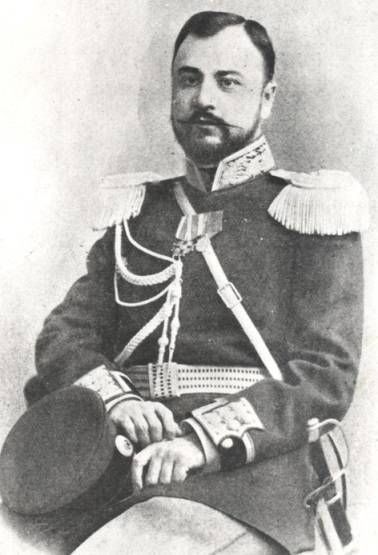
The second Crimean regional government
In October 1918, the cadets, having enlisted the preliminary support of the Germans, decided to replace the government of Sulkevich. The Cadets feared that in the conditions of the evacuation of the German army, the Bolsheviks would return to the Crimea, and there was a threat of separatism. The main new government saw the cadet Solomon of Crimea. At the same time, local cadets were approved by Denikin and asked to send a person to organize white units in the Crimea.
3 November 1918, the commander of the German group in Crimea, General Kosh, with a letter addressed to Sulkevich, announced that he would no longer support his government. Already on November 4, the Crimean Prime Minister asked Denikin for "quick help from the allied fleet and volunteers." But it was too late. 14 November Sulkevich resigned. November 15 at the congress of representatives of cities, county and county zemstvos was formed the second part of the Crimean government, headed by Solomon Crimea. The new government will consist of Cadets and socialists. General Sulkevich himself will move to Azerbaijan and lead the General Staff there (in the 1920, he will be shot by the Bolsheviks).
Thus, the Crimea fell into the orbit of the White movement. The new Crimean government relied on the Volunteer Army. The Crimean Center of the Volunteer Army, headed by General Baron de Bode, will begin recruiting volunteers for Denikin’s army. But it was ineffective, the Crimea was still apolitical and did not give significant parties to the White Army. The White Command will send to the Sevastopol and Kerch cavalry regiment of Gershelman, small units and Cossack detachments. General Borovsky will receive the task of creating a new Crimean-Azov army, which was to occupy the front from the lower reaches of the Dnieper to the Don region. The first parts of Borovsky began to move north to Tavria.
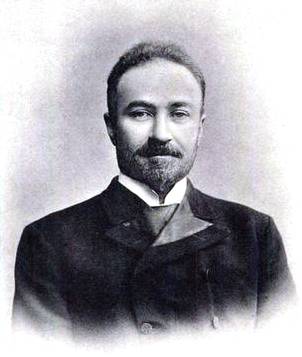
To be continued ...
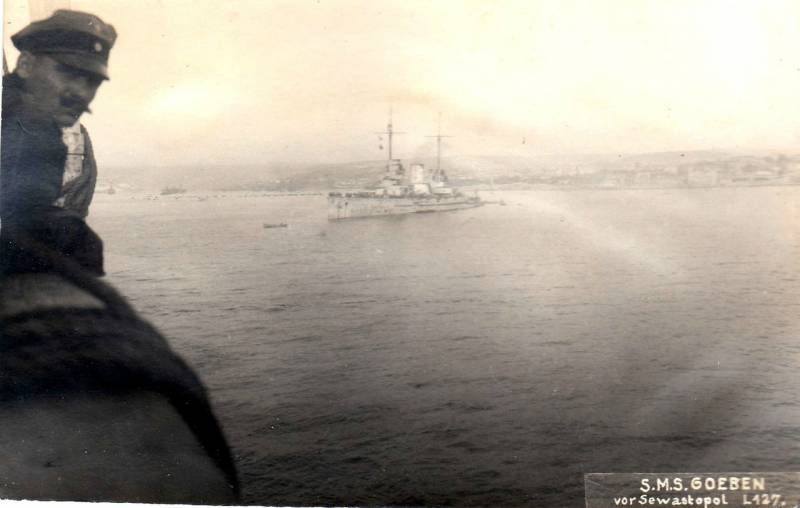
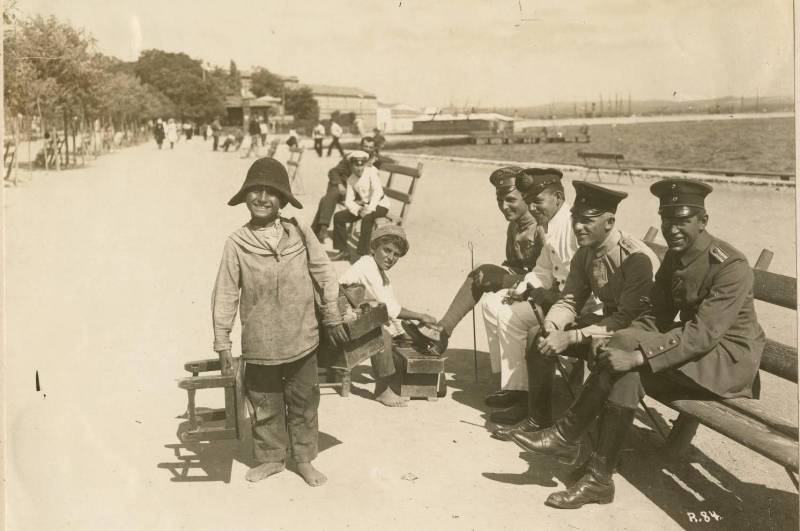
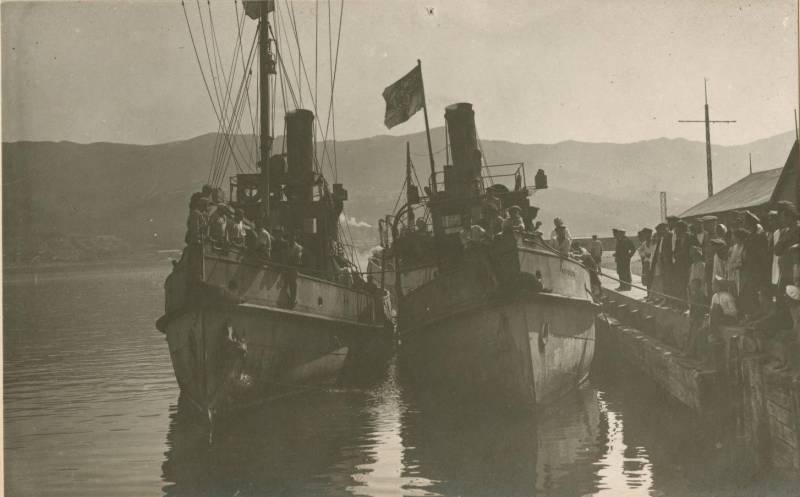
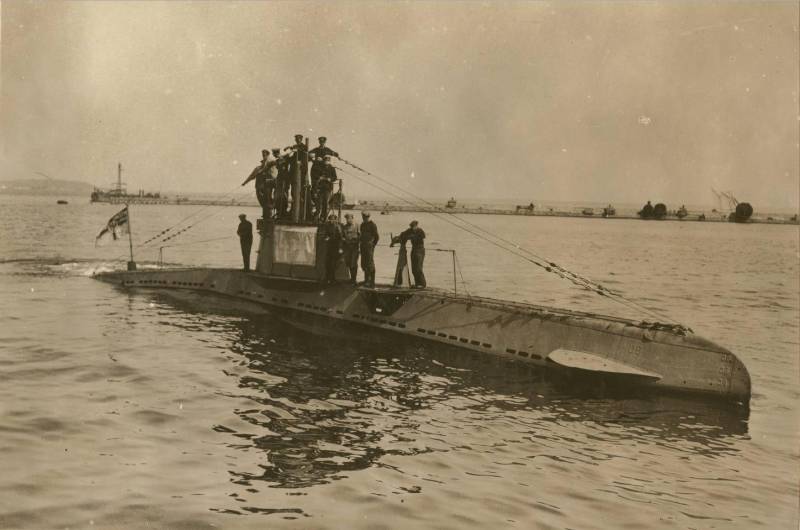
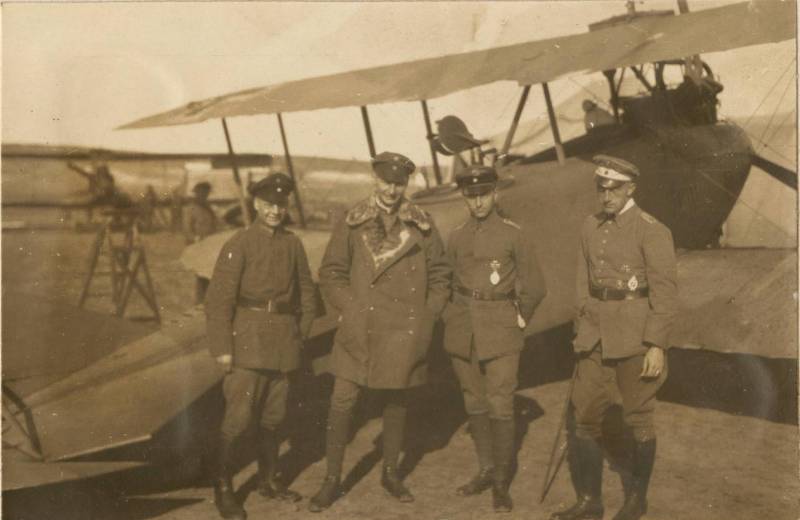
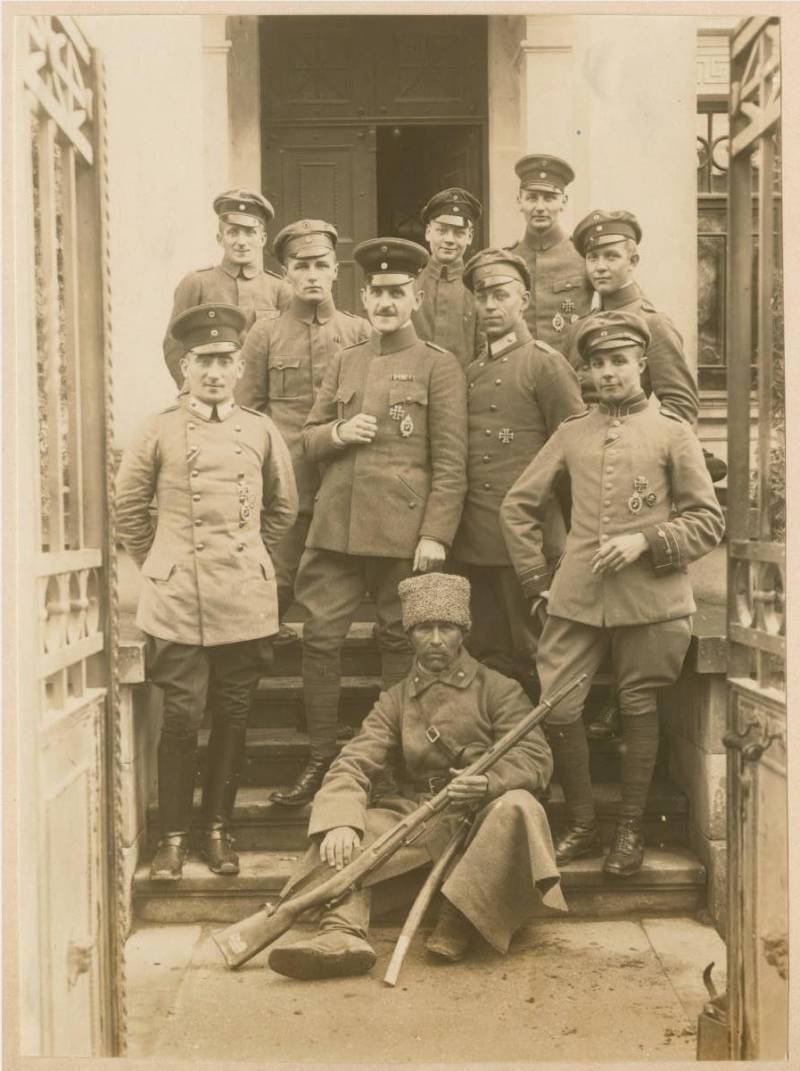
Information